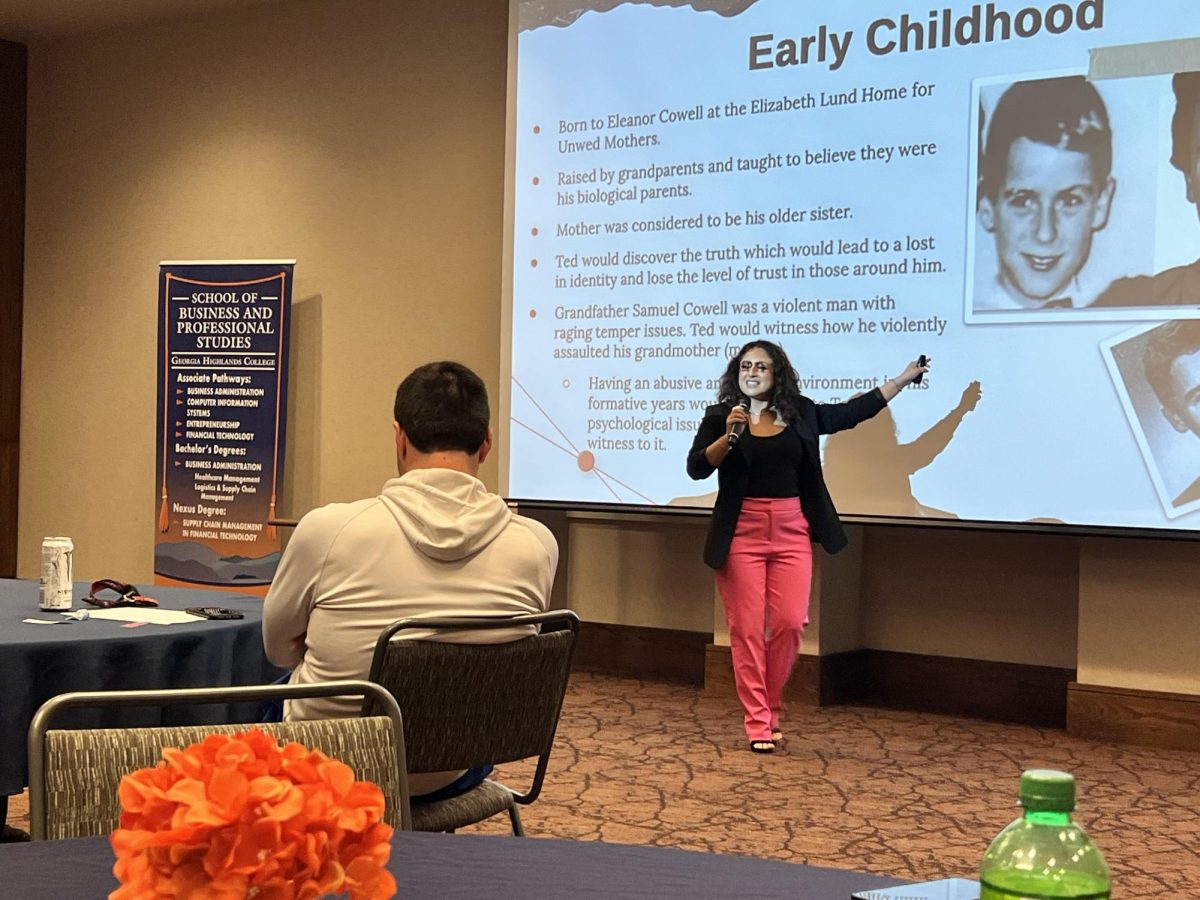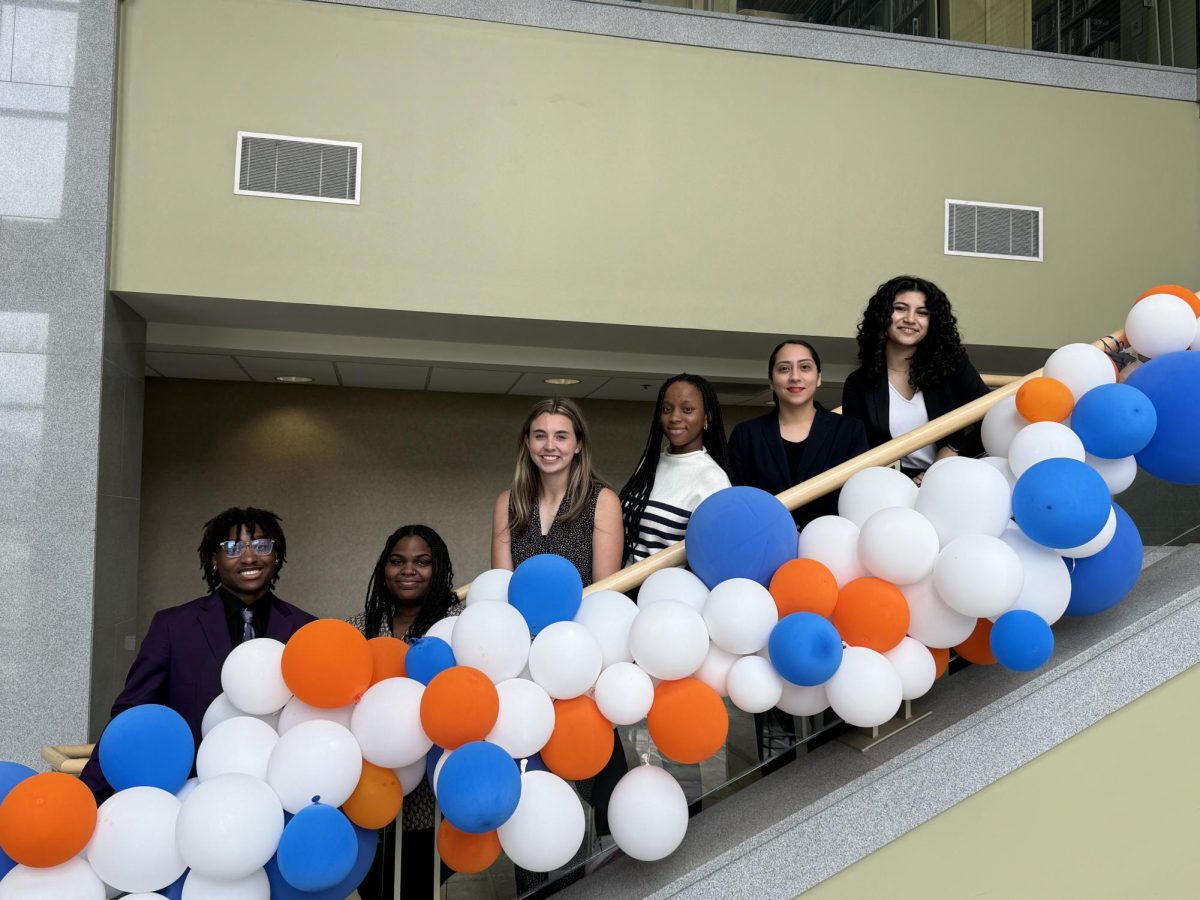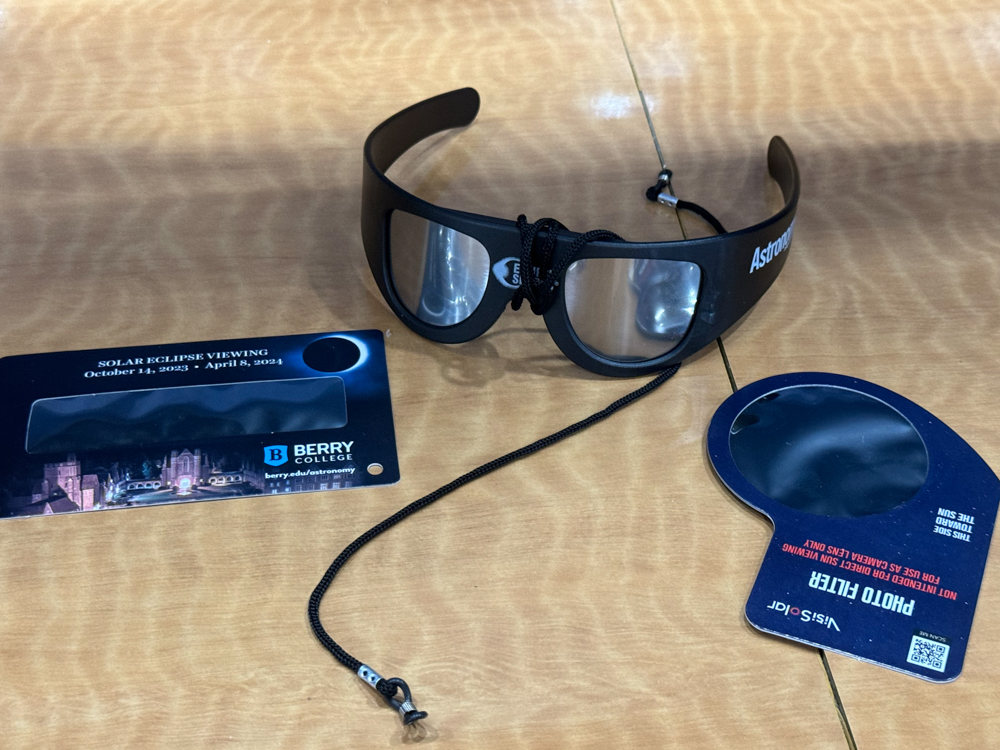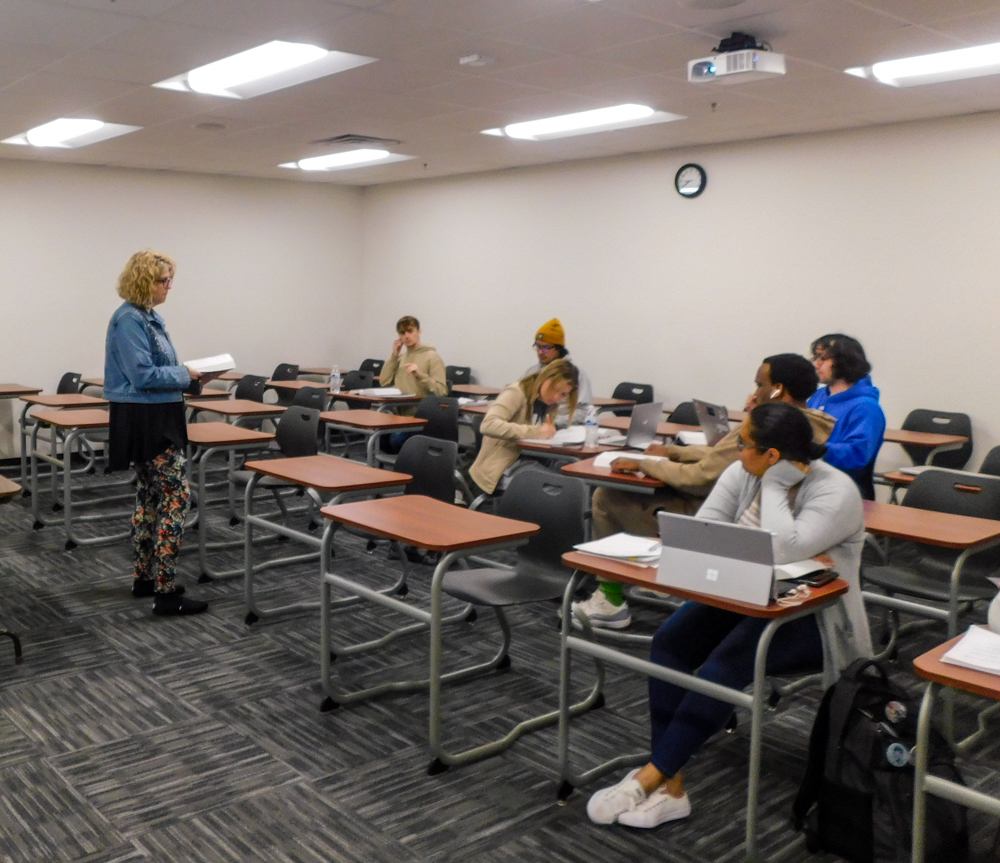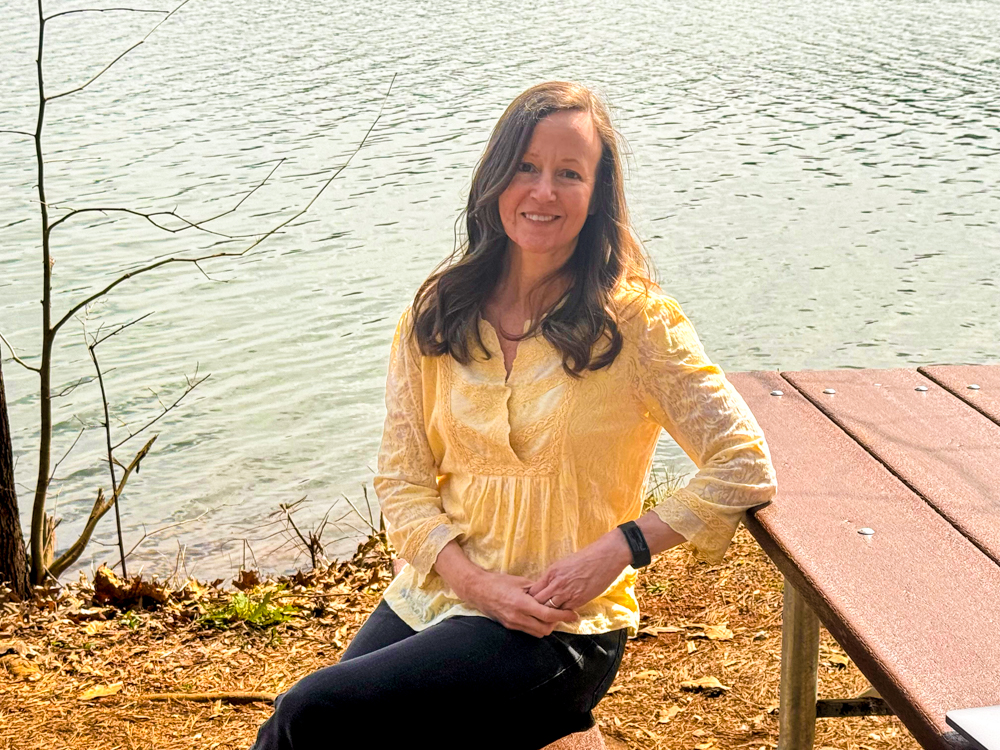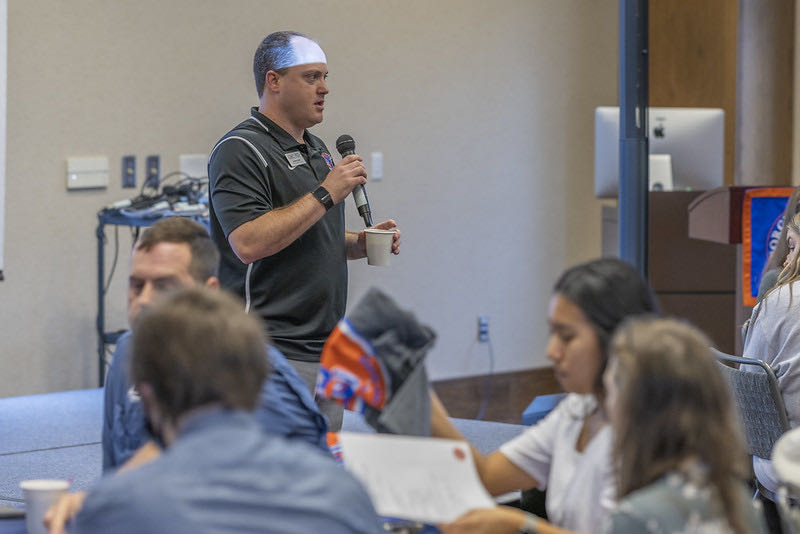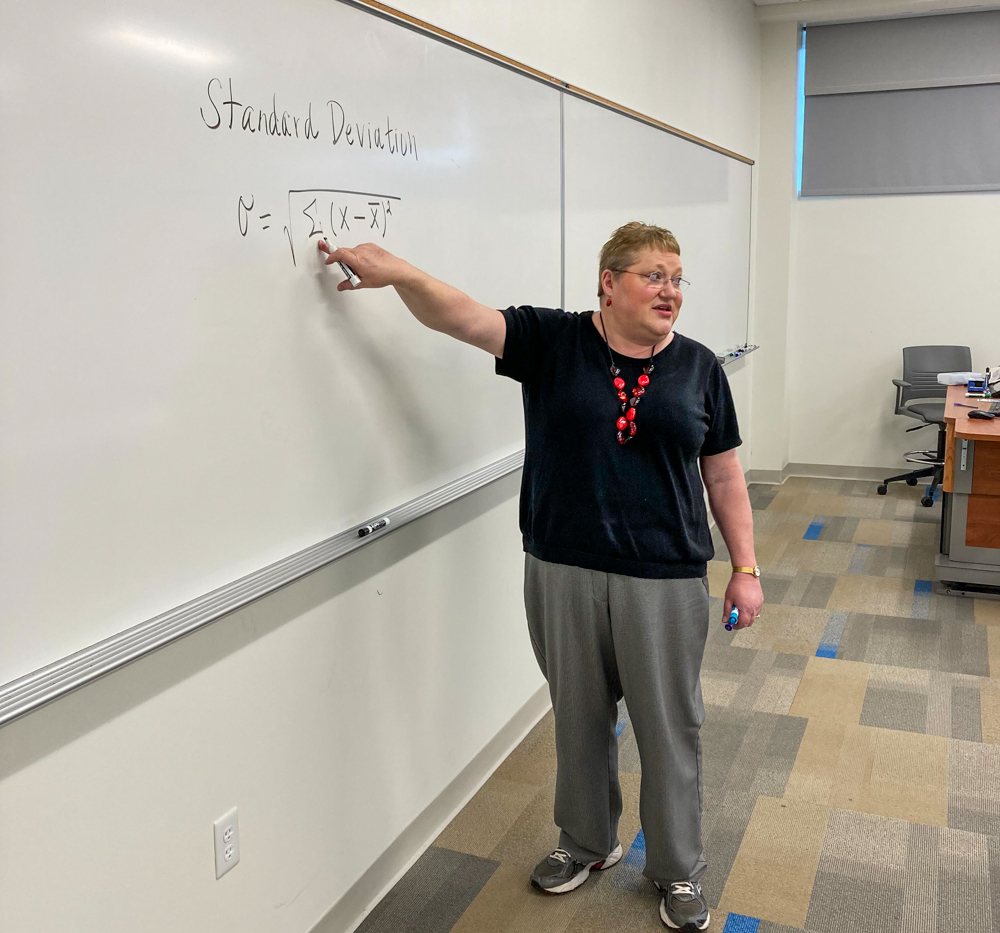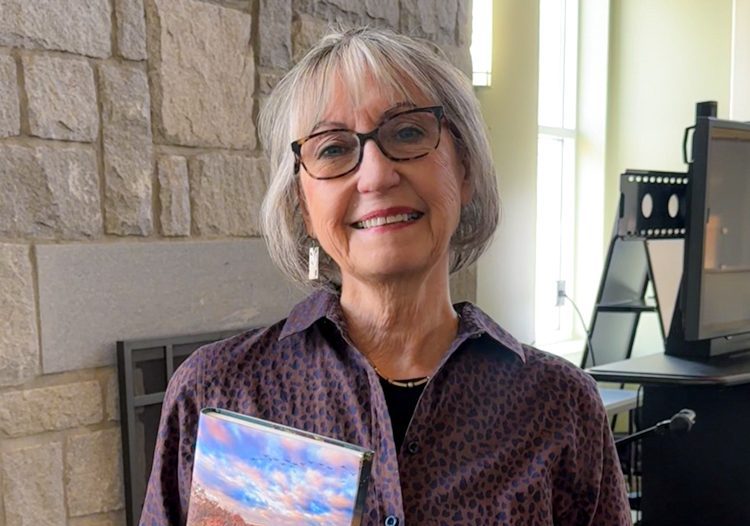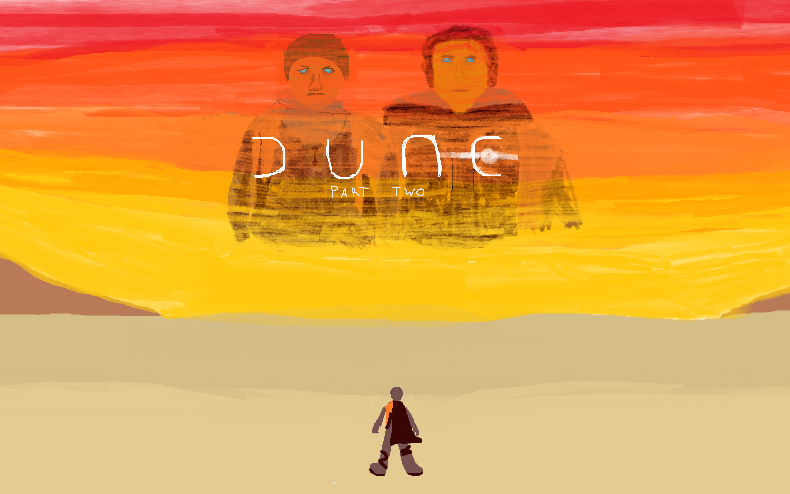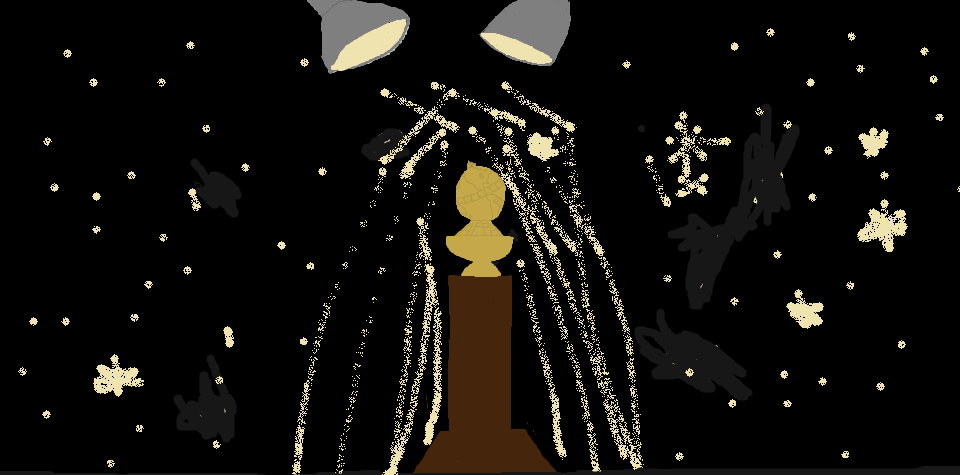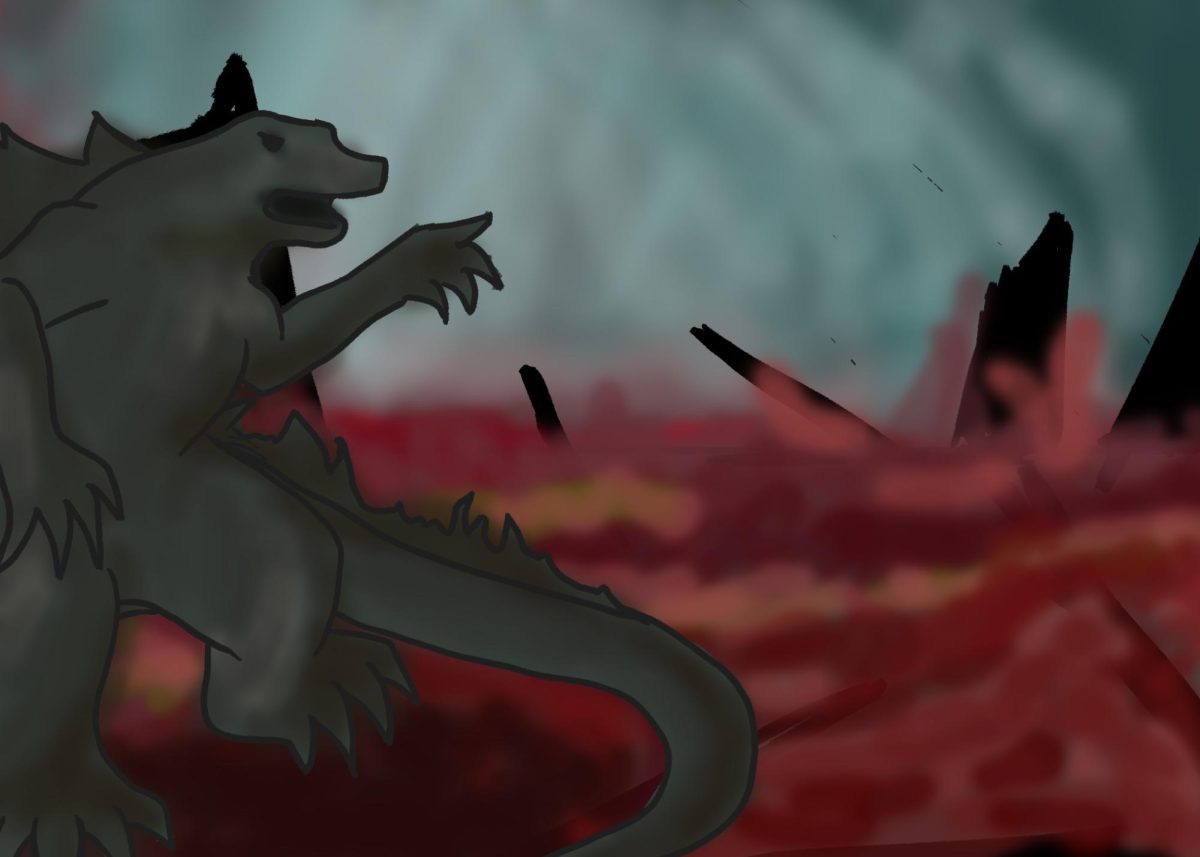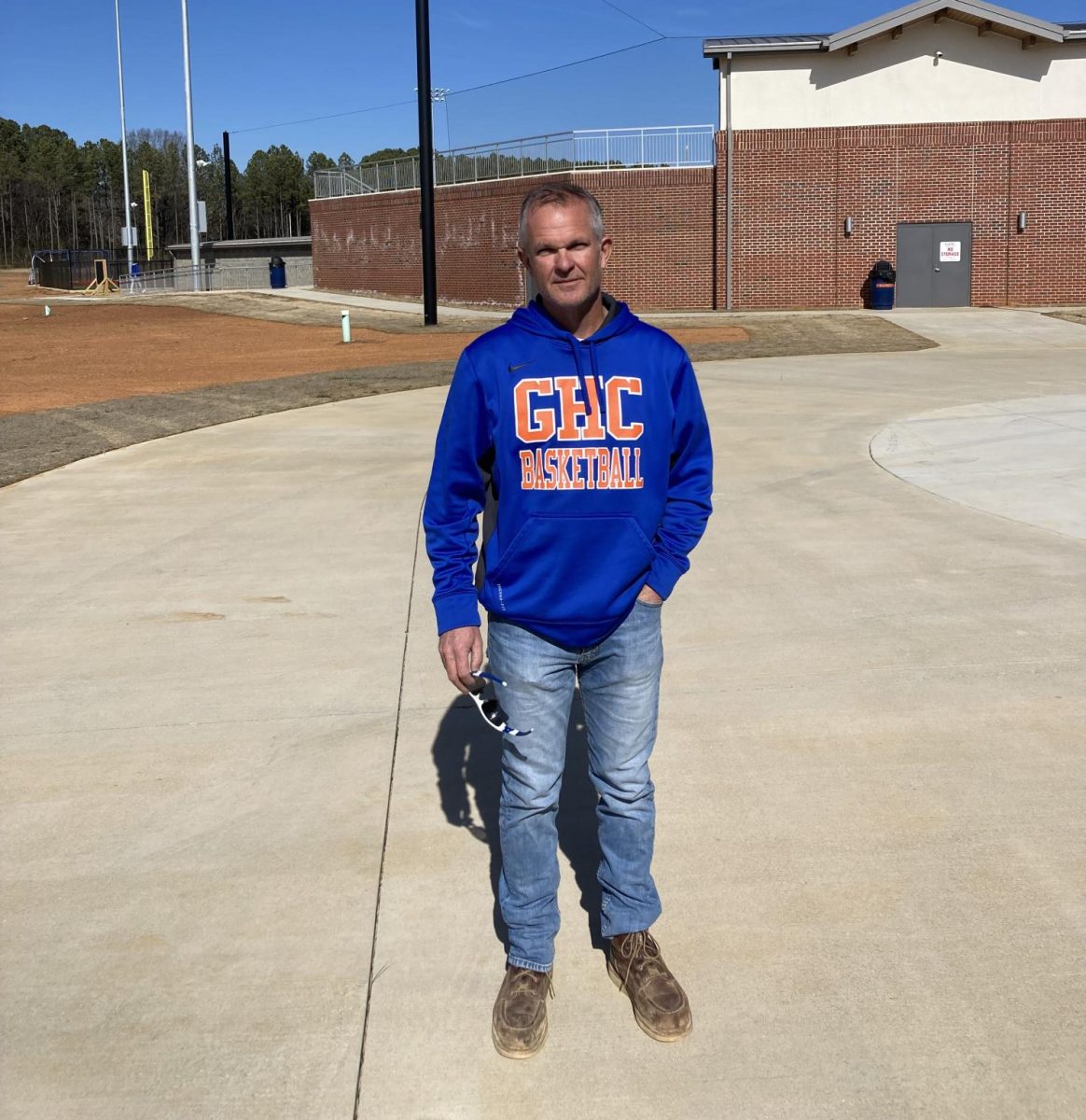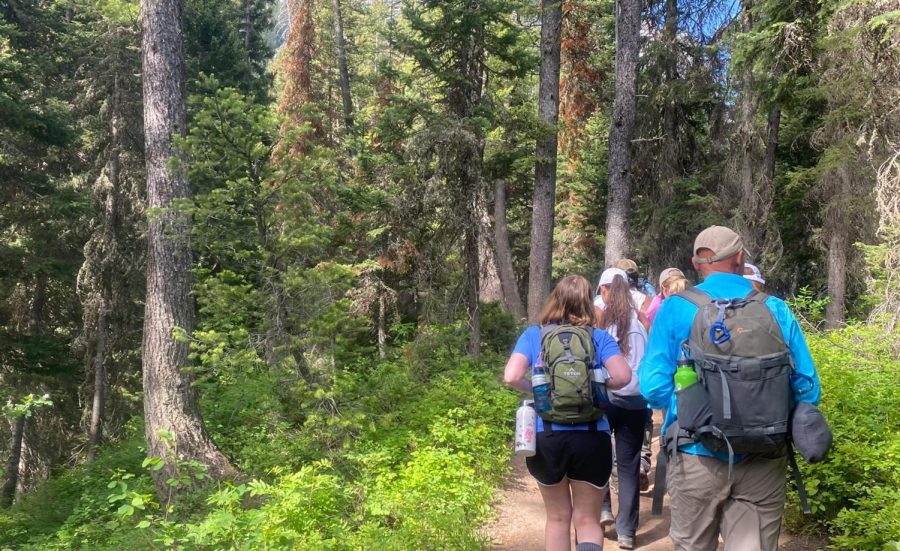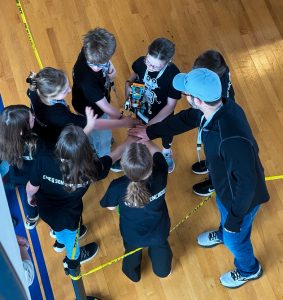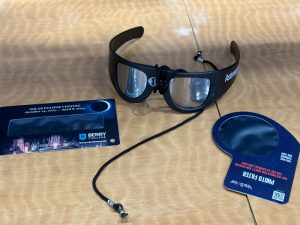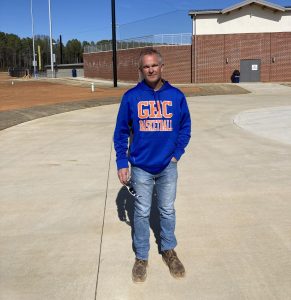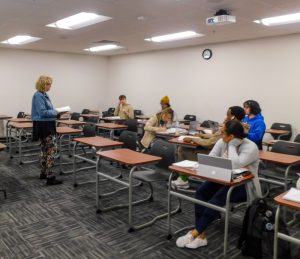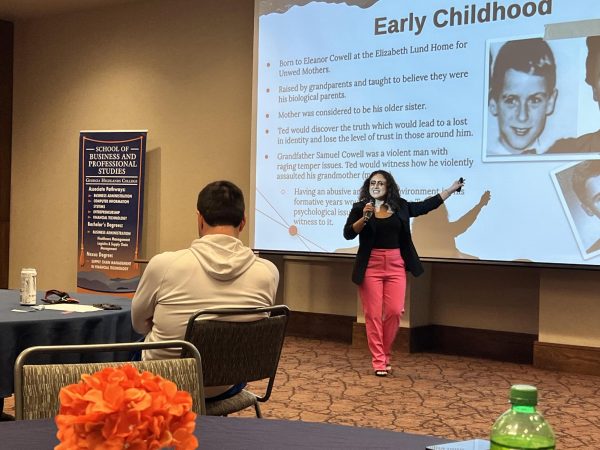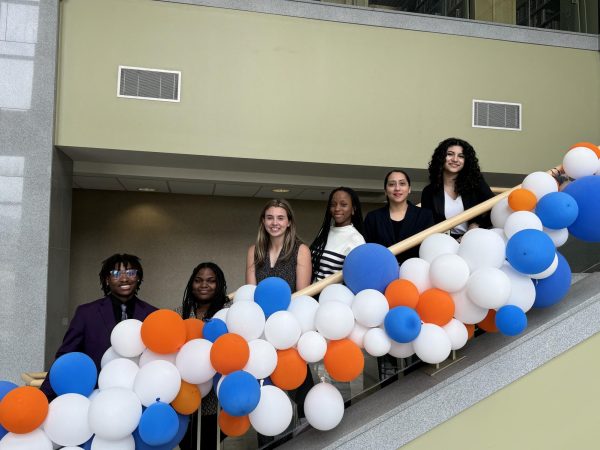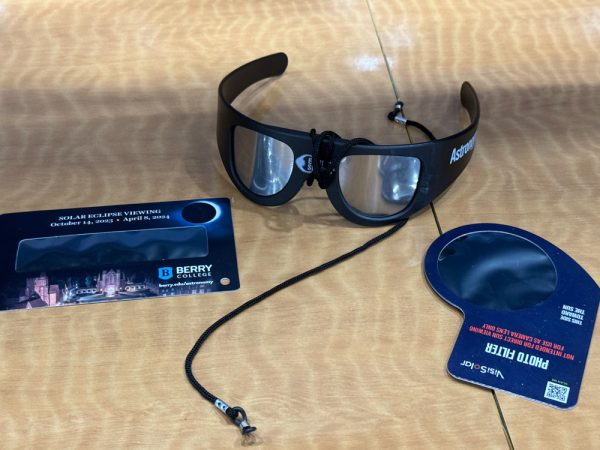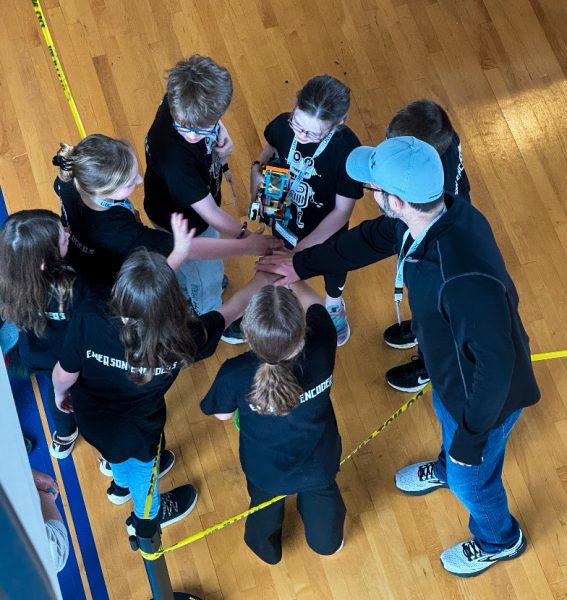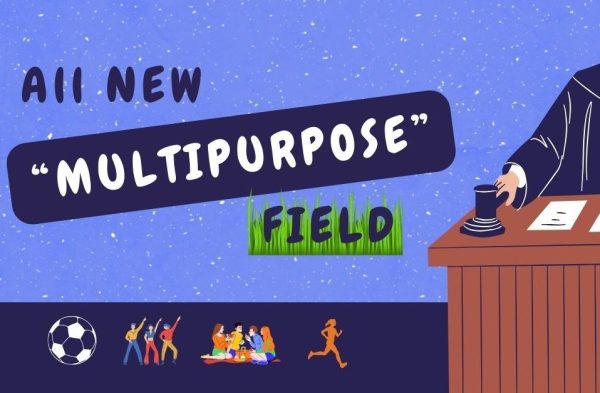GHC annual Wyoming study trip gets an upgrade
Geology Professor Billy Morris’ summer 2022 geology class hikes in Yellowstone.
November 3, 2022
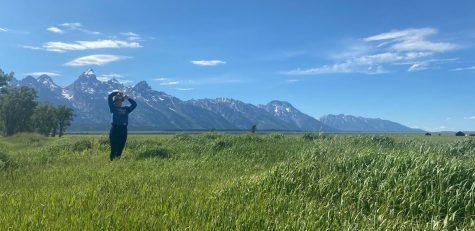
This summer, GHC is having its 26th annual Wyoming Field Study trip led by Geology Professor, Billy Morris, but a new face will be joining the crew: STEM Division Chair, Brandy Rogers.
Rogers tagged along for the 2022 Wyoming trip to “see what it’s all about,” but this will be her first year teaching ecology courses to attending students.
“I think the thing I’m most excited about is sharing [the trip] with the students,” Rogers said. “Getting to see students experience [Wyoming] for the first time…I can see the impact that it has, and I can anticipate what that’s going to do for their education going forward.”
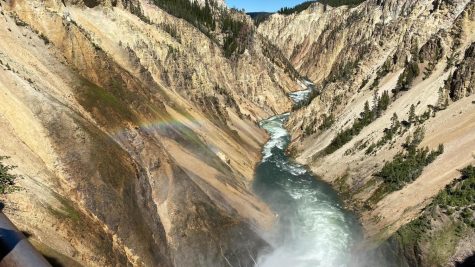
The Wyoming summer field courses will offer the opportunity to earn 11 science credits. Students can complete all Area D requirements through geology— eight total credit hours—or receive four credit hours in ecology, all while experiencing the ecosystems and geological formations of Wyoming and Utah.
There will also be an optional P.E. class called Fitness Walking and a special topics course called Dinosaurs.
The overall trip fee is $1700, not including tuition, and it is assessed as a lab fee. Financial aid can apply to some students. Spots for the trip are first come, first served.
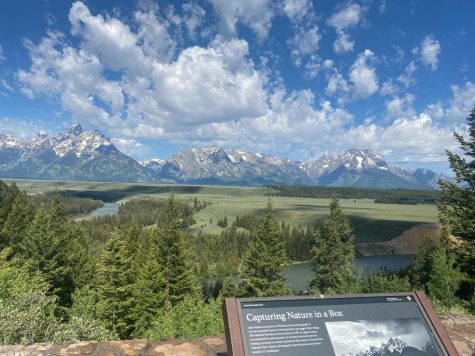
The departure date for 2023 will be on June 17. Students will begin traveling through 11 states starting from the Rome campus in two 15-passenger buses. There will be 24 students as well as professors Morris and Rogers. The trip will take around 30 hours with many stops along the way.
Students will be given background information on each course before leaving so they can build foundational knowledge during the trip.
There will be stops in Casper, Thermopolis, Cody, Yellowstone National Park, Grand Teton National Park, Jackson Hole, Kemmerer, Dinosaur National Monument and the Arches and Canyonland National Parks. Students will return to Rome on July 8.
Morris said that the integration of geology and ecology is exciting for the 2023 trip because science in the natural world is not separated into categories.
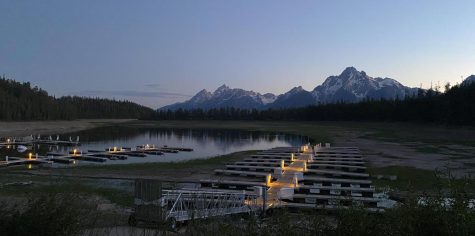
“To explore the interconnections and the way that these two disciplines interact with one another is very exciting and the students seem to really react well to that,” Morris said.
“I found a sign when we were out in Yellowstone last year that said exactly that, and it got me really excited because that’s our whole plan,” Rogers said.
Students will spend time doing hands-on work in the geology classes: observing, documenting, taking notes and trying to record and explain what they see.
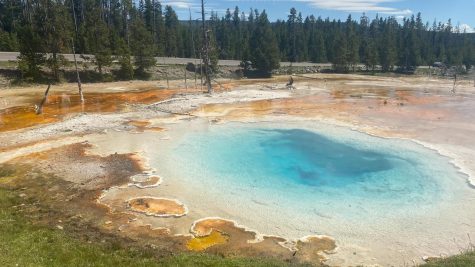
“Wyoming has rocks from every geologic time period in the states,” Morris said. “It has a wide range of surface features, like volcanism, streams, glaciers and active mountain building. It’s a living textbook.”
The ecology classes will focus on seeing how organisms interact first-hand with both the living and nonliving components of their ecosystem.
“We’re standing there, looking at it, taking pictures of it, touching it, drawing it, writing about it in the field as opposed to doing it in a classroom,” Rogers said.
There will be a wide variety of plants and animals to examine, including everything from microorganisms to big animals such as elk, bison, bears and wolves.
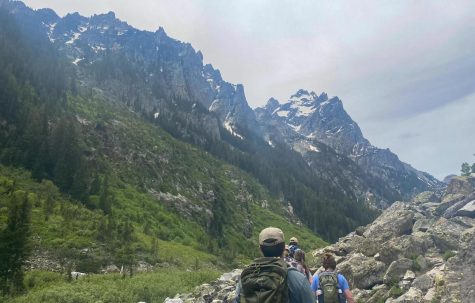
While geology students will look at the rock formations there, ecology students will investigate desert plants and animals in order to study the adaptations these organisms have undergone to survive in their environments.
Students will get to hike, collect fossils, tour museums and more over the course of the trip. Students who were previously strangers grew to become friends on past trips.
“I still stay in touch with many of those students from 20 years ago or more,” Morris said. “I really got to know students outside the classroom and develop relationships with them.”
According to Morris, the trip has given some students a new perspective.
“When you put students in a challenging physical place where they’re having to work hard, where they’re doing something they might not try on their own otherwise, it really opens a lot of doors in the brain,” Morris said.
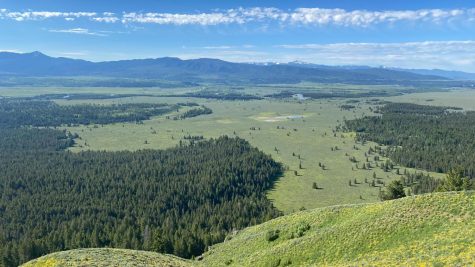
“It will give a fantastic opportunity for students to expand their knowledge in a unique and rewarding way,” Jason Christian, Dean of the School of STEM, said. “This expansion we hope to be the beginning of new study-away options for more GHC students in the coming years.”
To see how to apply or learn more information about the Wyoming Field Study trip in the summer of 2023, please refer to www.highlands.edu/wyoming.



